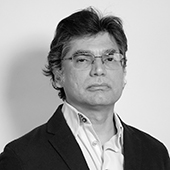Luis Argüello, general secretary of the Spanish Episcopal Conference. /
The Catholic hierarchy will collaborate with the investigation of the Ombudsman and announces that it will defend conscientious objection against the reform of the abortion and euthanasia law
The Episcopal Conference recognizes 506 victims of sexual abuse committed by “members of the church”, both in religious congregations and in dioceses. The offices to receive complaints from victims of sexual abuse within Catholicism that the church itself opened two years ago by order of the Pope “has allowed us to learn about the drama of 506 people, to whom we want to offer recognition and reparation », Monsignor Luis Argüello, general secretary of the Spanish Episcopal Conference, maintained this Friday.
These cases are distributed among the 202 offices “for abuses committed in the past, since those of the present are immediately referred to the civil authorities,” Argüello said. Of these instances of receiving complaints, 60 are diocesan and 142 belong to 121 congregations. In two years, on average, each has received fewer than three complaints, according to these data. “The cases are what they are. Why are there going to be more », he maintains.
Some of these cases, says Argüello, have prescribed both civil and canonical, but are investigated the same due to their seriousness; others “are already known and had their way”, the fifth part (103) were committed by “people who have already died but have opened up to find out their circumstances”, and “300 are due to matters that have occurred more than 30 years ago”. The perpetrators of sexual abuse are “clerics, priests, priests, diocesans, presbyters, ordained religious, non-ordained brothers and lay people with some charge or work in the church,” he continued. “There will be training processes that prevent this situation from occurring in the present and the future, and to remove those people who are shown to be unworthy.”
On the investigation by the Ombudsman, Ángel Gabilondo, approved yesterday by Congress, the position of the curia is to “collaborate” but not “participate.” Although Argüello acknowledges that “the Spanish church has taken a turn in the path that it has been following,” he maintains that “we are waiting for what is presented to us, a concrete proposal. The first thing is to know what the objective is.
The “collaboration to the extent that we are told” has three conditions, it indicates: the legal framework, “respect for the privacy of the victims” and the data protection law. However, the church does not consider “being part of that commission.”
Argüello regrets that Congress had an “initiative that only looks at the church” and did not open the order so that it “is extended to the entire problem of abuse that affects the entire society.” Regarding the dossier of victims received from the newspaper ‘El País’, he maintains that the complainants have been contacted and have received “three types of answers”: they agree to establish direct contact with the church, they respond that they do not want to “get in touch” and “no response”.
For conscientious objection
The Catholic Church also announced that it will defend conscientious objection against the euthanasia law and the probable reform of the abortion law, proposed by the Government to guarantee the voluntary interruption of pregnancy in hospitals. According to the church, both euthanasia and abortion are a “phenomenon of behaviors that were tolerated through decriminalization, and that are now transformed into rights that collide with others that we consider more fundamental, such as conscientious objection.”
These “subjective rights”, encouraged by an “individualism that does not want to accept any ethical limits”, imply “the denial of authentic fundamental rights of other human beings”, says Argüello, referring to euthanasia and the “next reform of the law of abortion.”
Other rights that they consider threatened by the Government’s formula to prevent doctors from refusing to perform abortions and euthanasia in public hospitals are “freedom of conscience and religious freedom.” Argüello asks to reflect on “the meaning that conscientious objection has for freedom.” On this subject, the church is preparing a proposal that it will announce shortly, “in this moment of great transformation, a moment of great social and anthropological change.”
Gabilondo assumes the investigation into abuses in the Church
The Ombudsman has assumed the task approved this Thursday in the Congress of Deputies with the task of setting up an independent commission to prepare a report on complaints of sexual abuse in the Catholic Church and the role of public powers and says it will work with “transparency” and “discretion” to respect the victims.
The institution explains that the Commission will prepare a report with recommendations and conclusions that will be presented to the Cortes Generales and the Government of Spain “so that the measures they consider necessary in all areas are adopted.”
“It is the will of this institution to work with due transparency and with the discretion that, in turn, respect for the victims requires,” the Ombudsman underlines in a statement collected by Europa Press.
In this sense, it adds that it will proceed to periodically inform the Mixed Commission for Relations with the Ombudsman of the Cortes Generales on the status of the work.
www.hoy.es
Eddie is an Australian news reporter with over 9 years in the industry and has published on Forbes and tech crunch.
